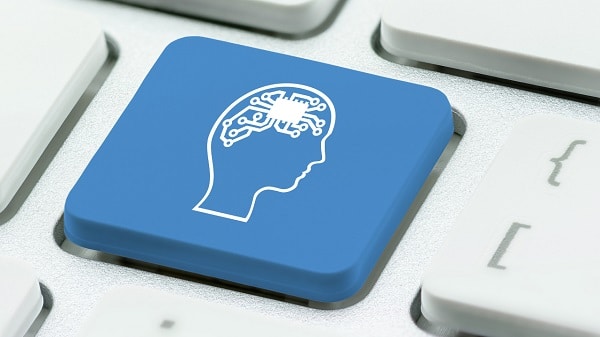The liver, one of the body’s most vital organs, plays a crucial role in metabolizing nutrients, detoxifying harmful substances, and producing essential proteins. However, liver damage can insidiously develop without conspicuous symptoms, often going unnoticed until the condition becomes severe. Surprisingly, certain subtle signs might indicate liver distress before traditional symptoms like jaundice appear. This article delves into the surprising warning signs of liver damage, aiming to raise awareness and promote early detection for better health outcomes.
Contents
Unexplained Fatigue

Fatigue is often brushed off as a result of a busy lifestyle, but when it becomes chronic and unrelenting, it may point to underlying liver problems. The liver plays a key role in energy metabolism, and damage to this organ can lead to a persistent feeling of exhaustion, regardless of one’s rest or activity levels. It’s crucial to discern this fatigue from general tiredness, as it often persists in a more severe form in individuals with liver issues. Understanding this nuance can be a pivotal step in identifying liver damage early and seeking timely medical intervention.
Changes in Skin Color

One of the early indicators of liver damage is a change in skin and eye color, commonly known as jaundice. This symptom occurs when the liver fails to process bilirubin, leading to its accumulation in the body and resulting in a yellowish hue to the skin and whites of the eyes. However, liver issues can also cause other skin color changes, such as a pale or reddish complexion. Recognizing these signs can be crucial for early diagnosis and treatment, preventing further liver deterioration and potential complications.
Abdominal Pain and Swelling

Liver damage can manifest through abdominal discomfort, often perceived as a dull ache or a sense of fullness in the right upper quadrant of the abdomen. This pain can be a result of liver enlargement or inflammation, known as hepatomegaly. In more advanced stages, fluid accumulation in the abdomen, or ascites, can cause significant swelling and discomfort, indicating severe liver impairment. Early recognition and management of these symptoms are vital in preventing further liver damage and improving patient outcomes.
Itchy Skin

Itchy skin without an accompanying rash can be a perplexing sign of liver damage, often overlooked in initial assessments. This itchiness, medically referred to as pruritus, can occur due to the accumulation of bile salts in the bloodstream and skin, a common issue in liver diseases like cholestasis. The itching can be widespread or localized and often worsens at night, leading to significant discomfort and sleep disturbances. Recognizing this symptom as a potential indicator of liver dysfunction is crucial for early diagnosis and management, as it often precedes more overt signs of liver damage.
The intensity of itchiness does not necessarily correlate with the severity of liver disease, but its persistent presence should warrant a liver function evaluation. Patients may experience varying degrees of pruritus, which can fluctuate in intensity and become a major source of distress, affecting their quality of life. Medical professionals usually associate it with liver conditions when other causes of itchiness, like dermatological issues, are ruled out. Thus, itchy skin, especially when other liver-related symptoms are present, should prompt an evaluation for liver health.
Dark Urine and Pale Stool

Changes in the color of urine and stool can provide significant clues to underlying liver issues. Dark urine, often a deep amber or brown color, can indicate a high level of bilirubin in the body, suggesting liver dysfunction or bile duct obstruction. Conversely, pale, clay-colored stools may arise from a lack of bile reaching the intestines, which is essential for the normal digestion of fats and imparting color to the feces. These changes are important diagnostic indicators and should not be ignored, as they can signify serious liver conditions, including hepatitis and cirrhosis.
The relationship between liver function and excretion processes underlines the organ’s critical role in waste management and detoxification. When the liver is damaged, its ability to process and eliminate waste products efficiently is compromised, leading to these noticeable changes in excretion. Patients may also observe that these changes are consistent and not just occasional deviations from their normal patterns. Recognizing these signs can facilitate early medical intervention, potentially preventing further liver damage and improving overall health outcomes.
Unusual Bleeding or Bruising

A liver in distress may struggle to produce enough clotting factors, which are proteins vital for blood coagulation, leading to unusual bleeding or bruising. This symptom can manifest as nosebleeds, bleeding gums, or the development of bruises from minor bumps or injuries that previously would not have caused such marks. These signs are particularly concerning as they indicate a significant decrease in liver function, necessitating immediate medical attention to prevent serious complications. Early recognition of these symptoms is essential for diagnosing and managing liver damage before it progresses to more critical stages.
Additionally, individuals with liver damage may notice that their wounds heal more slowly or that they bleed more than usual from small cuts or abrasions. This is due to the impaired synthesis of clotting factors, affecting the body’s ability to form blood clots efficiently. The severity of bleeding and bruising can vary but is often more pronounced in advanced liver disease, making it a critical marker for liver health assessment. Monitoring for such symptoms and seeking timely medical evaluation can greatly aid in the management and treatment of liver-related conditions.
Loss of Appetite and Weight Loss

Liver damage can significantly affect an individual’s metabolism and digestion, leading to a loss of appetite and subsequent weight loss. This symptom can be particularly insidious, as it might be mistaken for diet-related issues or other non-specific health problems. However, when coupled with liver damage, these signs can indicate serious metabolic disturbances caused by the organ’s inability to process nutrients and toxins effectively. Recognizing these symptoms as potential liver damage indicators is crucial, as they can lead to early diagnosis and management, improving the prognosis.
Weight loss in the context of liver disease may not always be healthy or intentional, often resulting from a decreased desire to eat due to nausea, a common symptom of liver dysfunction. The body’s natural response to the impaired liver function may include altering metabolism rates, leading to muscle wasting and fat loss, further complicating the clinical picture. Therefore, unexplained weight loss and reduced appetite, especially when occurring with other symptoms of liver distress, should prompt a thorough liver function evaluation to rule out underlying liver conditions.
Cognitive Changes

Cognitive changes, such as confusion, memory loss, or difficulty concentrating, can be alarming symptoms of liver damage, particularly in advanced stages. These mental changes, often referred to as hepatic encephalopathy, occur when the liver fails to remove toxins from the blood, allowing them to accumulate and affect brain function. Patients may experience subtle changes in their mental state initially, which can progress to more severe cognitive impairments if the liver condition worsens. Early detection and treatment of liver issues are vital to prevent or mitigate these cognitive effects and maintain overall brain health.
The relationship between liver health and cognitive function underscores the importance of monitoring for signs of hepatic encephalopathy in individuals with known liver disease or symptoms of liver dysfunction. Symptoms can range from mild, such as slight confusion or forgetfulness, to severe, including changes in personality or behavior, disorientation, and, in extreme cases, coma. These cognitive signs are critical indicators of the liver’s health status and should be evaluated promptly to manage the underlying liver condition and prevent further neurological damage.
Recognizing the Unseen Dangers
The liver’s pivotal role in our overall health cannot be overstated, with damage to this crucial organ manifesting through various, often surprising, signs. Recognizing symptoms like unexplained fatigue, skin color changes, abdominal issues, itchiness, alterations in urine and stool color, unusual bleeding or bruising, loss of appetite, weight loss, and cognitive shifts can lead to early detection of liver damage. Awareness and prompt medical attention to these signs are key to preventing serious liver complications. It’s essential to heed these warning signals, ensuring timely diagnosis and treatment for better liver health and overall well-being.


